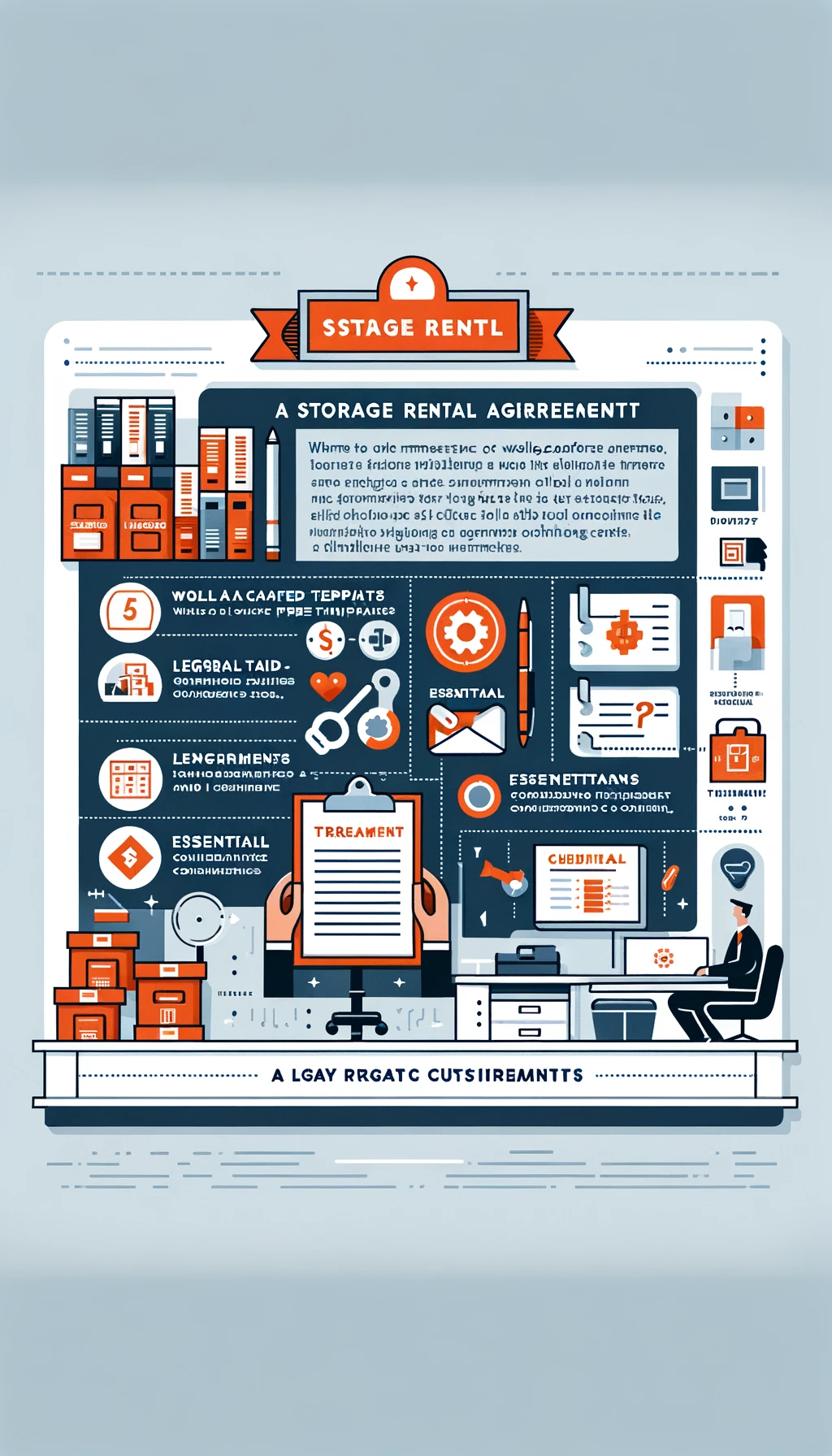The Complete Guide to Free Storage Rental Agreement Templates
In today's fast-paced world, the demand for storage space has surged, making storage rental agreements more important than ever. Whether you're a storage unit owner or a renter, having a comprehensive storage rental agreement is crucial to protect both parties' interests. This guide dives deep into the world of storage rental agreements, offering insights into free templates and legal considerations, ensuring your storage solutions are seamless and secure.
Understanding Storage Rental Agreements
A storage rental agreement is a legally binding contract between the storage unit owner (lessor) and the individual or entity renting the storage space (lessee). This agreement outlines terms including the rental period, payment details, use restrictions, and the responsibilities of each party. The primary aim is to ensure clear communication and prevent disputes over the storage arrangement.
Importance of a Well-Crafted Agreement
A detailed agreement serves as a legal safeguard for both the storage facility owner and the renter. It helps to:
Define the scope of what is being rented, including size, location, and specific unit.
Specify payment terms, such as rental amount, due dates, and late fees.
Outline the permitted use of the unit and prohibited items.
Detail the process for termination, access rules, and any maintenance responsibilities.
Where to Find Free Storage Rental Agreement Templates

Several reputable sources offer free storage rental agreement templates that can be customized to meet specific needs. Here are a few platforms where you can find these templates:
Legal Aid Websites: Many legal aid organizations provide free legal documents, including storage rental agreements. These templates are designed to comply with general legal standards.
Government Websites: Some state or local government websites (gov) may offer resources or templates for rental agreements to ensure public access to legally accurate information.
Educational Institutions: Law schools or university legal clinics (edu) sometimes provide free legal templates as part of their community service initiatives.
Components of a Storage Rental Agreement
A comprehensive storage rental agreement should include the following key elements:
Parties' Information: Full names and contact details of the storage facility owner and the renter.
Description of the Storage Unit: Location, size, and specific unit number.
Rental Term: Start and end date of the rental period.
Rental Payment: Amount, payment intervals, late fees, and payment method.
Security Deposit: Amount of the deposit and conditions for its return.
Use Restrictions: Guidelines on what cannot be stored (e.g., hazardous materials) as per Environmental Protection Agency regulations.
Access: Hours of access and any limitations.
Liability and Insurance: Clauses detailing insurance responsibilities and liability limitations.
Termination Conditions: Conditions under which the agreement can be terminated by either party.
Signature: Legal signatures of both parties, making the document binding.

Create & Review Your Contracts 10x Quality and Ease
Lawyer-level AI handles all your contract needs, with real lawyers providing safeguarding support

Legal Considerations
When drafting or using a free storage rental agreement template, it's crucial to consider the legal implications. Storage rental laws vary by state, so it's important to ensure that your agreement complies with local regulations. Consulting with a legal professional or referring to authoritative legal resources, such as Cornell Law School's Legal Information Institute, can provide valuable guidance.
Customizing Your Agreement
While free templates offer a solid foundation, customizing the agreement to address specific details of your storage rental situation is essential. Be sure to:
Adapt the template to align with state-specific laws and regulations.
Include any specific rules or policies of your storage facility.
Clearly define terms and conditions to avoid ambiguity and potential disputes.
Best Practices for Storage Rental Agreements
To ensure a smooth rental experience, follow these best practices:
Clear Communication: Discuss all agreement terms with the renter before signing.
Documentation: Keep a signed copy of the agreement for both parties' records.
Updates and Amendments: Review and update the agreement periodically to reflect any changes in laws or rental conditions.
Conclusion
A well-structured storage rental agreement is vital for the smooth operation of storage rental transactions. Utilizing free templates can be a cost-effective way to create this essential document, provided they are customized to meet specific needs and comply with local laws. By incorporating the elements outlined in this guide and adhering to best practices, storage unit owners and renters can establish a clear, legal framework for their storage arrangements.
For more information on legal documents and property rental agreements, consider visiting Wikipedia's page on lease agreements or the American Bar Association for resources and legal advice tailored to property rentals and agreements.

